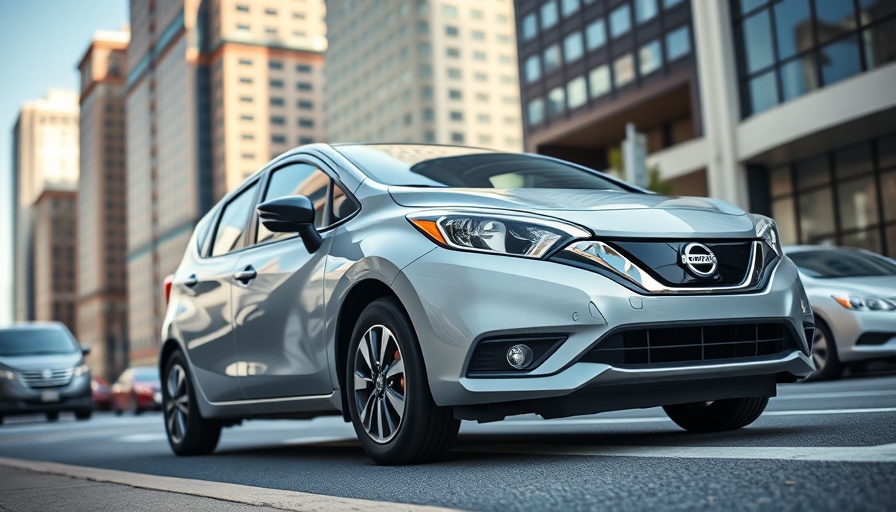
Nissan's Manual-Transmission Versa: A Farewell to an Affordable Icon
Nissan has announced the end of production for the five-speed manual-transmission Versa, a decision motivated by declining consumer interest and sour economic conditions. In a recent report from Automotive News, it was revealed that fewer than 5 percent of the Versas sold last year were equipped with a manual gearbox, signaling a bigger trend in automotive preferences.
Economic Pressures: Tariffs and Profit Margins
The automotive industry is currently facing major challenges, particularly with rising tariffs. The 25 percent import tariff on cars coming from Mexico, where the Versa is manufactured, has compounded the already difficult business case for the manual model. This tariff effectively adds about $4,500 to the Versa's cost, a blow that is particularly damaging to the pricing structure of low-cost vehicles like the Versa, which starts at just $18,330 for the 2025 model year. With such thin profit margins on budget-friendly cars, Nissan’s decision to terminate this variant was strategically sound.
Consumer Trends and the Shift to Automatics
The automotive market has increasingly gravitated toward automatic transmissions. In the case of the Nissan Versa, a car that was once heralded for its value and accessibility, consumer preference clearly leaned towards models equipped with Continuously Variable Transmissions (CVT). As manufacturers streamline product offerings, models like the manual-transmission Versa become less viable. Nissan has confirmed they will continue production of the CVT models, focusing on the trims that resonate most with buyers.
Nissan's Broader Strategy in a Shifting Market
As automakers adapt to changing consumer preferences and market conditions, Nissan’s decision aligns with a broader industry trend. The move simplifies production and may help in recovering from the financial downturn the automaker has faced in recent times. While the departure of the manual-transmission Versa signals an end to an era, it also reflects the evolutionary path of the automotive landscape towards efficiency and consumer satisfaction.
Reflecting on the Manual Transmission's Legacy
This discontinuation serves as a poignant reminder of the evolving automotive industry and consumer behavior. The manual transmission, once celebrated for affording drivers a sense of control and engagement, is now becoming an endangered feature, primarily relegated to high-performance vehicles. This shift may leave automotive enthusiasts pondering the future of driving experiences, valuing engagement over convenience.
In conclusion, while the decision to end the production of the Nissan Versa with a manual transmission may seem a small change, it encapsulates significant shifts in consumer behavior, economic challenges, and the industry's strategic evolution. Dealership owners and automotive professionals should take note, as these trends will likely shape the future landscape of car sales.
 Add Row
Add Row  Add
Add 

 Add Row
Add Row  Add Element
Add Element 




Write A Comment